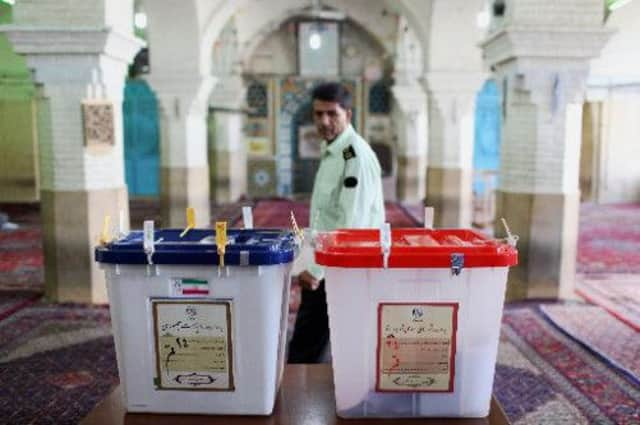Gerald Warner: Iran’s elections and the West


There seems to be an inverse correlation between the amount of coverage and pseudo-excitement the media impose on an electoral contest and the size of the turnout. Only in places where voting is regarded as a luxury can either popular interest or a sizeable turnout of voters be expected.
The Iranian presidential election is being scrutinised in the West with the usual tunnel vision: which candidates are “liberal”, which would be likely to deliver democracy and “freedom”, what prospects will the outcome offer for halting Iran’s nuclear programme? A combination of cultural narcissism, wishful thinking and geopolitical self-interest is ensuring that the western public views Iran through its own mindset rather than that of Iranians. Everyone knows Iran is a theocracy, created by US president Jimmy Carter when his grandstanding liberalism inspired him to subvert the Shah, in the same way that his predecessor Woodrow Wilson created the Third Reich when he destabilised Europe at Versailles in 1919. It is not true to say Americans do not “do” foreign policy: they just do it very badly.
Advertisement
Hide AdAdvertisement
Hide AdWhat are the prospects for liberalism in Iran? In a sense, the presidential election was over before the polling stations opened. Several hundred individuals wanted to be presidential candidates; the Guardian Council whittled their number down to six, all approved by the Supreme Leader Ayatollah Khamenei. The only supposed liberal among them, Hassan Rouhani, is also the sole cleric. His reputation for liberalism largely rests on his suspension of the uranium enrichment programme during negotiations with the International Atomic Energy Agency and his modest reform agenda of pressing for the release from house arrest of Mir Hossein Mousavi, the “Green” movement candidate at the 2009 presidential election.
The government has taken elaborate security measures to prevent a repeat of the protest demonstrations that followed the last presidential elections, including a crackdown on media and the internet and the preparation of secret prisons by the Revolutionary Guards. It might be supposed the Arab Spring protests have made the regime jittery; but there are two sides to that coin. Western media did the Iranian government a big favour by christening Middle Eastern unrest the “Arab Spring”, thus culturally distancing it from Iranians, who are not Arabs but Aryans. Tehran presents it as an Islamic renaissance – which of course it is, with the Revolutionary Guards involved in repressing the Sunni insurgents in Syria.
Iranian voters are not concerned about creating a model ballot-box democracy overnight, but they are deeply worried about the economy. If the Supreme Leader can turn that around, in the face of US sanctions, the populace will be content. Inflation has risen relentlessly in recent months and is now running at 31 per cent annually. Yet Iran’s GDP, at more than $1 trillion, still ranks 18th in the world. Under Barack Obama, America’s global power and prestige is shrinking dramatically. The Supreme Leader Khameini’s message to America on his country’s polling was: “To hell with you if you do not believe in our election!”
That rebuff has considerable resonance around the world, where America’s cack-handed and feeble interventions are lessening, not increasing its authority. Many Iranians are well disposed towards America, despite the regime’s propaganda; but 80 per cent are solidly behind the nuclear programme, provided it is restricted to peaceful purposes. As a matter of national pride they want to know what gives the United States a right of veto over their energy development. “Because you cannot be trusted to use nuclear power responsibly” is the gist of the American response. Coming from the only nation on Earth that has used atomic weapons in anger, that somehow rings hollow.
There is less at stake in these elections than meets the eye. There is no realistic catalyst for change. Of course they are a sham; but what contemporary elections are not? British commentators take a particularly patronising attitude because Iranian elections are rigged so that all candidates represent the same establishment policies. Not like Britain, eh? Here you have a choice between three parties (four in Scotland with the tartan loons) and, no matter which you vote for, you will get unrelenting servility to the European Union, mass immigration, green taxes, wind farms, government surveillance of citizens, the destruction of marriage, politically correct impositions and rampant corruption in every public institution. If the ayatollahs want to retain power indefinitely, they should run free trips to Britain for their citizens so that they can judge if democracy is worth fighting for. The Iranian election is as big a charade as a British contest: you cannot say worse than that. «
Twitter: @GeraldWarner1